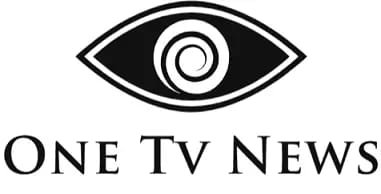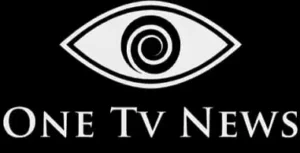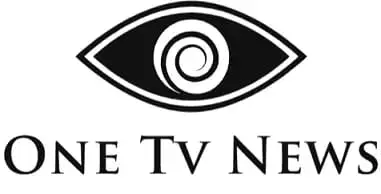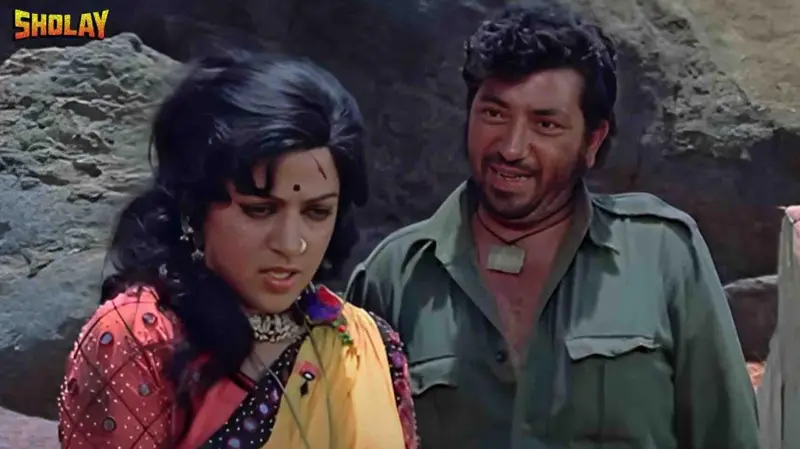Why Are Bollywood’s Superhit Films Accused of Being Copies, from “Sholay” to “Barfi”?
-
Bollywood’s Biggest Hits Face Plagiarism Accusations
-
Writer Amit Aryan Alleges Salim-Javed of Copying Blockbuster Scripts
-
Sholay, Zanjeer, and Barfi Among Films Accused of Plagiarism
-
Is Bollywood’s Creative Process Truly Original? Experts Weigh In
-
Sholay: A Copy of Mera Gaon Mera Desh and Once Upon a Time in the West?
“These are two individuals whom the whole world respects, but they have done nothing in their entire lives apart from plagiarism (copying). Salim-Javed are copywriters, not original creators.”
These are the words of writer Amit Aryan, recently spoken about the two famous Bollywood scriptwriters, Salim Khan and Javed Akhtar. Salim Khan and Javed Akhtar have given Indian cinema blockbuster films like “Zanjeer,” “Deewar,” “Sholay,” “Trishul,” “Don,” “Kranti,” “Shakti,” and “Mr. India,” among many others.
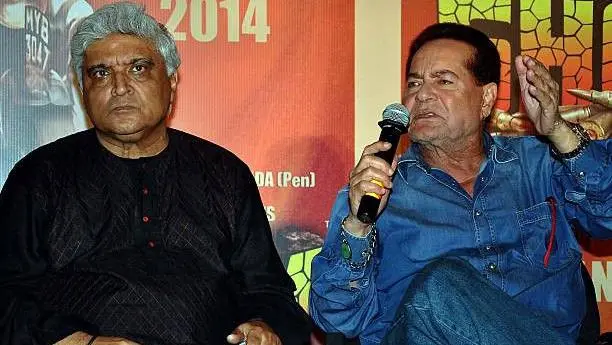
Amit Aryan, who has written films like “FIR,” “ABCD,” “Yeh Un Dino Ki Baat Hai,” “Lapataganj,” and “Do Not Disturb,” has made this accusation.
Aryan further claimed that the film “Sholay” is a copy of Raj Khosla’s movie “Mera Gaon Mera Desh.” It is worth noting that “Sholay” has faced previous accusations of being a copy of Sergio Leone’s “Once Upon a Time in the West.”
Many people associated with Bollywood have long alleged that the dialogue between Jai (played by Amitabh Bachchan) and Mousi (played by Leela Mishra) in the 1975 blockbuster “Sholay” was lifted from renowned Urdu fiction writer Ibn-e-Safi’s novel “Khaufnaak Imarat.”
The song “Mehbooba Mehbooba” from the movie was claimed by some to be a copy of an Arabic song, while others considered it a rip-off of the English song “Say You Love Me.”
The BBC tried to contact Javed Akhtar for comments on these recent allegations, but as of this writing, no response has been received.
However, in his recent book “Talking Life,” a conversation-based book with Nasreen Munni, Javed Akhtar dismissed these allegations as “baseless,” though he did admit being inspired by Sergio Leone. In an interview with an Indian media house, he also mentioned that he used to enjoy reading Ibn-e-Safi’s works.
Salim-Javed,Image Source: Getty Images
Caption: The duo Salim-Javed delivered more than a dozen hit films, and at one time, they were paid more than actors.
He further stated that some people claimed their movie “Zanjeer” was a copy of “Dirty Harry,” which he called “nonsense.” According to him, “Zanjeer” was Salim Khan’s original idea, on which both of them worked together.
He mentioned that although “Khoon Khoon,” a movie inspired by “Dirty Harry,” was indeed made, it was the work of someone else. He dismissed all such allegations as “rubbish,” saying that none of their films were copies of any other movie.

Nevertheless, allegations of plagiarism in Indian cinema, especially in Bollywood or Hindi cinema, are not new. Many famous films, from scripts to scenes, dialogues, music, and songs, have faced accusations of copying.
When the BBC questioned Professor Arvind Das, Director of the School of Media and Journalism at DY Patil International University in Pune, about the extent of plagiarism in Bollywood, his response was: “As Ghalib said, ‘I used to laugh at my situation before, but now, nothing makes me laugh anymore.'”
He stated, “It has permeated the Indian film industry to the extent of shamelessness, and the issue is that no action is taken. Such material is simply accepted as ‘inspired.'”
He added, “In the West, plagiarism has cost people their presidencies and jobs, forcing them to face shame. Take the example of Fareed Zakaria, who had to step down from the editorship of Newsweek.”
He claimed, “The famous coin-tossing scene in ‘Sholay’ was also copied from ‘Garden of Evil.'”
Sholay’s Poster, Image Source: Sholay
Caption: The poster of the film “Sholay”
He said it is a significant issue, but no one pays attention anymore. According to him, films like Shah Rukh Khan’s “Baazigar” and “Agni Sakshi” have also faced accusations of being copies of “Sleeping with the Enemy.”
He mentioned, “The situation becomes even worse when even India’s Oscar-nominated film ‘Barfi’ faces allegations of plagiarism, but nothing is done.”
Similarly, the film “Bareilly Ki Barfi” is said to be based on “French Kiss.” He pointed out that with the age of the internet, one can search for any film and its original source to see how deep plagiarism runs in Indian cinema.
Ravi Kant, Associate Professor of Indian Languages Program at the Center for the Study of Developing Societies (CSDS) in Delhi, remarked, “Plagiarism is a human instinct, and it is essential for the growth and development of anything.” He expressed his view, saying, “Copying is inevitable for the growth of popular culture.” He questioned, “Those who accuse Salim-Javed of copying, can they create or write something similar?”
However, when someone takes another’s creative work and presents it as their own, it is considered plagiarism, and this issue has existed worldwide for a long time.
Lagaan was possibly the first film made with a bound script, Image Source: Getty Images
Caption: Lagaan was probably the first film made with a bound script
Definition of Plagiarism
Oxford University defines plagiarism as presenting someone else’s work or ideas as your own without fully acknowledging them, regardless of whether it is done with or without the original author’s consent.
Plagiarism is not usually a crime on its own, but like forgery, copyright infringement, or violation of moral rights, it can lead to legal consequences for fraudulent misrepresentation. It is considered a severe ethical offense in academia and industries.
Professor Lawrence Liang, a copyright expert and professor at Ambedkar University in Delhi, said, “Cinema has a long history of works being both uniquely and collectively produced. It is difficult to separate who contributed what in a film’s production, making this field highly specialized and unusual.”
He further stated, “This is why copyright laws do not play a significant role, and originality is not a strict requirement in films.”
He explained that in India, very few films are made with a bound script. Perhaps the first was Aamir Khan’s “Lagaan,” whereas typically, there is an idea that evolves daily, with many innovations during shooting. In such cases, what emerges is essentially a new creation.
He pointed out that some films have had multiple versions, all distinct from each other.
Stolen Kisses, Image Source: Social Media
Caption: Stolen Kisses
For example, Akira Kurosawa’s 1954 film “Seven Samurai” inspired the Indian movie “Saat Hindustani,” written by Khwaja Ahmad Abbas, while Hollywood made “The Magnificent Seven.” Furthermore, “Battle Beyond the Stars” claimed to have taken inspiration for its science fiction movie from “Seven Samurai.”
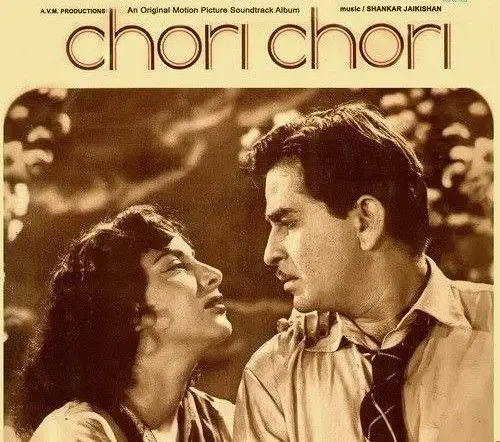
According to Professor Liang, copyright issues mainly arose when films were distributed on CDs and DVDs illegally, but now there are many legal platforms to watch movies online if you cannot see them in theaters.
He cited a well-known saying, “In filmmaking, what matters is not where you take an idea from, but where you take it to.”
Professor Liang noted that the 1936 film “It Happened One Night” inspired Raj Kapoor’s film “Chori Chori,” which later inspired Mahesh Bhatt’s “Dil Hai Ke Manta Nahin.” Despite this, each film stands unique on its own.
Professor Ravi Kant from CSDS said that India’s storytelling traditions, rooted in famous epics like the “Mahabharata” and “Ramayana,” reflect this. There are as many versions of the Ramayana as there are of the Mahabharata, and one cannot label these adaptations as plagiarism.
Nevertheless, Professor Liang emphasized that while A-list scriptwriters like Anurag Kashyap and Salim-Javed may escape scrutiny, new writers often face exploitation without proper compensation, reflecting a political economy where such exploitation is a violation of copyright.
He remarked that song and music plagiarism is even more common in Bollywood than story copying, with music directors like Bappi Lahiri and Anu Malik often being notorious for it.
He noted, “It is very common, especially in remixes.”
Professor Liang shared that the song “Dil Tadap Tadap Ke Keh Raha” from the film “Madhumati” was taken from a Polish folk song, which constitutes cultural translation. Now, with the internet, one can see numerous examples of songs accused of being copied, from Salil Chowdhury to R.D. Burman.
Journalist Manojit Lahiri wrote an article titled “Chori Mera Kaam” on Bollywood’s plagiarism, mentioning films like “Chori Chori” to “Fraud,” which is said to be a copy of “An Unlawful Entry.”
If you visit the movie site “IMDb,” you will find numerous Hindi films that are either remakes or inspired by Hollywood movies.
Professor Ravi Kant commented that only successful films or works are accused of plagiarism. He shared an anecdote about a movie that used a verse from poet Firaq Gorakhpuri, who asked for royalties, to which readers of the film magazine “Shama” responded, stating that while the poem’s inclusion proved its popularity, there was no proof that the film’s success was due to the poem, making the demand excessive.
Ravi Kant said that many singers make their living by imitating Mohammad Rafi. Similarly, Professor Liang mentioned an incident involving Kumar Sanu, who, when asked why he only sang Kishore Kumar’s songs, said
that while Kishore Kumar sang for films, he could not.

There is no harm in this imitation; it reflects admiration for the legend, and the industry has flourished due to such inspirations.
Some experts believe that copyright in cinema, whether relating to the written word or dialogues, should have some level of limitation.
